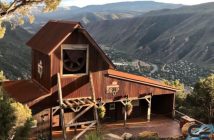What’s Up with the ACCT Draft Standard?
Ever since the public comment period on the proposed ANSI/ACCT draft standard closed last Jan. 24, many have wondered what the next steps would be. API has sought clarification about this on several occasions, and has learned that the standards-writing process has been put on hold following the unusually large number of comments submitted regarding the draft.
“We want to thank everyone that got involved in the process, including the volunteers that worked on the draft standards, and those that submitted comments about the draft,” ACCT president and board chair Korey Hampton told API.
She noted that “1,729 comments were received from 79 different individuals. The vast amount of feedback seems to indicate that the current draft may not be the direction the industry wants to pursue at this time.”
Since late January, the ACCT board, which represents the ANSI (American National Standards Institute) Accredited Standards Developer (ASD), has met multiple times with the body the board convened to process the draft—the Consensus Group—to discuss the best path forward, Hampton said. However, the two groups have not been able to agree on that path.
One option, favored by the Consensus Group, would be to respond individually to each comment and commenter, and incorporate the comments deemed valid into the existing draft standard.
Another option, favored by the ACCT board, would be to revoke the Project Initiation Notice (PIN) that launched the latest draft standard process and start from scratch with a new PIN. This option would still require that ACCT acknowledge to the commenters that their comments would be considered during the new draft process, but not necessarily require an individual response to each comment. However, the process of launching a new PIN takes time, and could be subject to delays.
There is some question as to which option would more quickly lead to a new draft standard acceptable to the broader aerial adventure and experiential education community, but in no case is a new draft likely to emerge within the next year—even if a decision on how to proceed is made at a board/CG meeting that, at press time, was scheduled for early June. A new draft will likely be a multi-year proposition.
And it will require broad participation from the industry, as the board seems to acknowledge. “While the ACCT board and the Consensus Group work to determine the best path forward, we encourage [industry members]to get involved in the process,” said Hampton. ACCT volunteer applications can be found at www.acctinfo.org/acct-committees.
New Standards Task Force
In a related step, ACCT is convening a task force to review its standards development process. As an ANSI ASD, ACCT is periodically audited by ANSI to review the policies and procedures for drafting and publishing standards and provide feedback. ACCT recently received the results of the latest ANSI audit and is ready to embark on the periodic update of ACCT’s policies.
To that end, ACCT, led by the board of directors, is assembling a task force “to bring together a diverse group of contributors from across the association to move forward with that review,” Hampton said. “ACCT members with experience in technical writing, standards development and/or an understanding of the ANSI process are encouraged to apply through the normal volunteer process.”
We at API would be remiss if we didn’t point out that, separate from the task force, the ANSI standards development process itself requires broad input from across the industry, including the general public. It is not necessary for participants in standards development to be members of ACCT, and as a practical matter, ANSI process rules effectively require inclusion of non-members. Anyone interested in having a say in the process can have a role. •
ACCT Appoints Temporary Operations Director Amid Executive Search
In May, the ACCT promoted events director Melissa Webb to the role of temporary director of operations. Webb is now responsible for the day-to-day operation and management of the business of the ACCT, including the management of finances, supervision of staff, and oversight of events and programs. Board chair Korey Hampton will remain the acting ACCT executive director until a permanent hire is made.

Temporary Ops Director Melissa Webb.
“While the ACCT continues to seek the right person to become our new executive, we are confident that Melissa’s extensive experience at ACCT will help to assure stability during the transition period,” said Hampton.
Webb has a background in facilitation and was a volunteer for the ACCT before joining its staff in 2013. She has since served as special events and membership coordinator, events manager, and later, events director.
Appointing Webb as temporary operations director allows the board to turn its attention to “finding someone who is right for the executive role,” said Hampton.
Bill Zimmermann resigned as ACCT executive director in February after less than 11 months in the role. The board aims to have a new executive in place by Nov. 1.
“The association is in a good place in the meantime,” said Hampton. “We are in good shape financially. We have a strong, active board and experienced staff. So, as a board, we feel we don’t need to be reactive in this situation.”
As such, the board has created a hiring task force to reexamine ACCT’s staffing model and the role and responsibilities of the executive. “We want to take our time to figure out what we want and what is best for our staff and organization,” said Hampton. •
Superbloom Super for Business
Southern California zip tour Skull Canyon Ziplines, which opened in 2009, is enjoying its best business year ever thanks to the wildflower “superbloom” blanketing the area. “The flowers started blooming in mid-January [in their incipient stage], and we’ve been out of control busy since then,” owner Pete Liston told API in May.

Zipping over the California superbloom. Photo credit: Kristha Cortes.
A superbloom is a rare botanical phenomenon in California and Arizona in which wildflower seeds that have lain dormant in desert soil bloom simultaneously following an unusually wet winter season.
The events aren’t as predictable as, say, the changing of the fall foliage, but Liston was confident a superbloom and the spike in demand it precipitates was likely this year. “We knew this winter because of all the rain that we would have a superbloom, so we started hiring more staff,” he said.
Skull Canyon offers four zip line courses of varying lengths and extremes as well as the Sky Gym, a 58-element challenge course. Liston said the crowds keen to zip above the wildflowers—mostly poppies—are booking whatever is open.
Liston has experienced two previous superbloom events at the zip tour—one in 2011 and one in 2019. The differences in experience demonstrate just how much the outdoor recreation landscape has changed in the last decade.
“When it happened in 2011, social media wasn’t what it is now,” he explained. “There was no such thing as a ‘superbloom.’ It was beautiful out here, but nobody cared. Social media changed things.”
In 2019, visitors who saw wildflower snaps on social media and were eager to capture content of their own, turned out in droves. “The superbloom back in 2019 stopped the freeway,” said Liston.
Skull Canyon is between Corona and Lake Elsinore, “the epicenter of the a-poppy-lypse,” as Liston dubbed it, and in 2019, the zip tour was one of the only places where the wildflowers weren’t trampled—the outfit does not allow hikers, and its zip liners have a much smaller footprint on the foliage.
This year, in February, the City of Lake Elsinore shut down access to neighboring Walker Canyon for the duration of the superbloom, which led to an even bigger spike in demand at Skull Canyon Ziplines. “We saw a huge number of people,” said Liston. The outfit has also been featured on most every news channel in California and even on the national news.
While all the earned media has been good for business, “With all the poppies, we saw a lot of people who just wanted to come hike,” said Liston. “We don’t allow hiking on the property, so that was challenging. Some people ignore you, or there can be language barriers.” Drones—also not allowed to operate on the property—have been another challenge, particularly those flown by flower tourists parked down on the freeway. The bloom also leaves behind a significant amount of brush, which can become a fire hazard.
Even with the challenges, though, Liston was pleased with the business impacts of the bloom, which look likely to extend beyond peak flower season. “The poppies are pretty much done now, but the demand seems to be holding,” said Liston. “We are getting a few cancellations from people who thought there would still be flowers in June, but we got enough media exposure that we expect demand will hold.”






